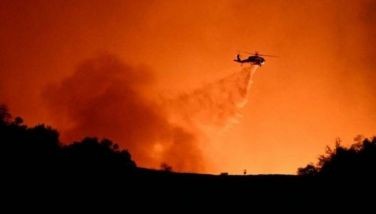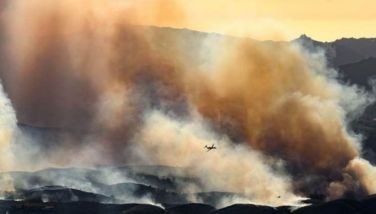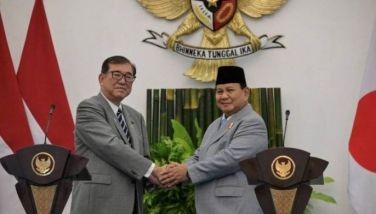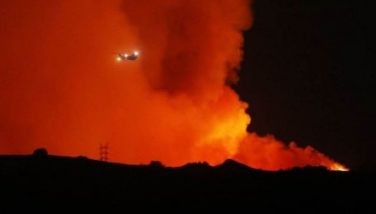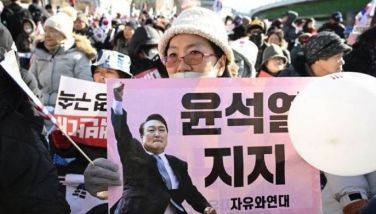WHO advises Chinese to take measures amid respiratory illness spike
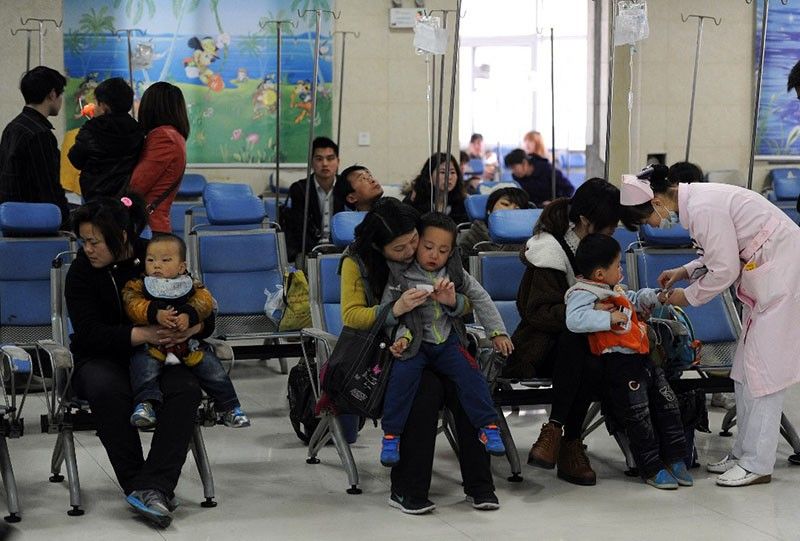
GENEVE, Switzerland — The World Health Organization on Wednesday urged people in China to "follow measures to reduce the risk of respiratory illness" and asked authorities for more information about a reported spike in cases among children.
Northern areas of the country have reported an increase in "influenza-like illness" since mid-October when compared to the same period in the previous three years, the WHO said.
"WHO has made an official request to China for detailed information on an increase in respiratory illnesses and reported clusters of pneumonia in children," the UN health body said in a statement posted on social media and confirmed to AFP by a spokesperson.
Chinese authorities told reporters on November 13 that the respiratory illness spike was due to the lifting of COVID-19 restrictions and the circulation of known pathogens, including influenza and common bacterial infections that affect children.
On November 21, media and public disease surveillance system ProMED reported clusters of undiagnosed pneumonia in children in northern China.
The WHO said it was unclear if ProMED's report was related to the authorities' press conference and that it was seeking clarification.
The agency "has also requested additional information on recent trends in the circulation of known pathogens, including influenza, SARS-CoV-2 (the virus that gives rise to Covid-19), RSV affecting infants and Mycoplasma pneumoniae, as well as on the degree of overcrowding in the health system," the statement added.
In the meantime, it urged people to take preventative measures, such as vaccination, keeping their distance from the sick, staying at home when ill, regular hand-washing and wearing masks as appropriate.
The WHO gave no indication of China's response to the request for more information.
Over the course of the Covid-19 pandemic, the WHO repeatedly criticised Chinese authorities for their lack of transparency and cooperation.
More than three years after cases were first detected in Wuhan, heated debate still rages around the origins of COVID-19, with scientists pitted between two main theories: an escape from a laboratory in the city where such viruses were being studied or an intermediate animal that infected people at a local market.
Earlier this year, WHO experts said they were sure that Beijing had far more data that could shed light on the origins of COVID, and called it a moral imperative for the information to be shared.
A team of specialists led by the WHO and accompanied by Chinese colleagues investigated China in early 2021, but there has not been a team able to return since and WHO officials have repeatedly asked for additional data.
WHO chief Tedros Adhanom Ghebreyesus has stressed that getting to the bottom of the mystery could help avert future pandemics.
- Latest
- Trending
















